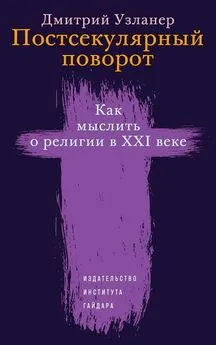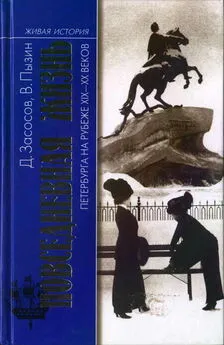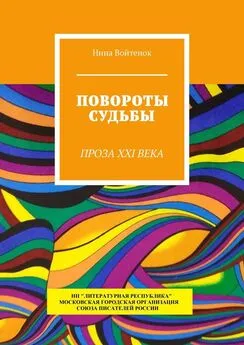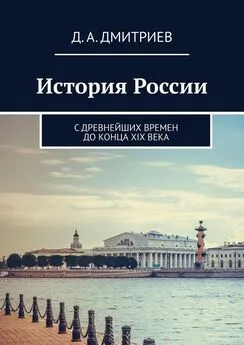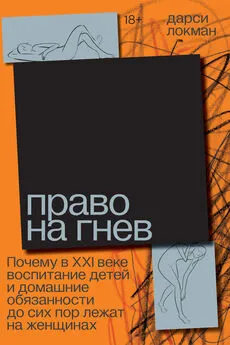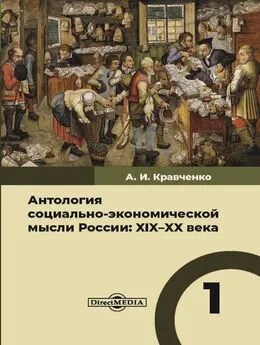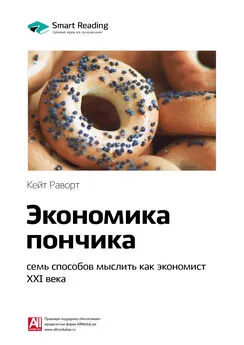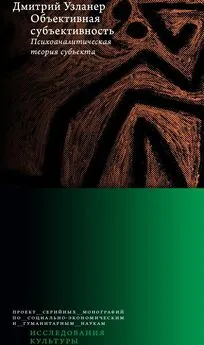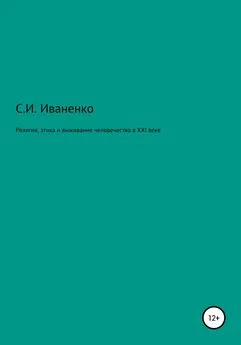Дмитрий Узланер - Постсекулярный поворот. Как мыслить о религии в XXI веке
- Название:Постсекулярный поворот. Как мыслить о религии в XXI веке
- Автор:
- Жанр:
- Издательство:Издательство Института Гайдара
- Год:2020
- Город:Москва
- ISBN:978-5-93255-581-1
- Рейтинг:
- Избранное:Добавить в избранное
-
Отзывы:
-
Ваша оценка:
Дмитрий Узланер - Постсекулярный поворот. Как мыслить о религии в XXI веке краткое содержание
Постсекулярный поворот. Как мыслить о религии в XXI веке - читать онлайн бесплатно ознакомительный отрывок
Интервал:
Закладка:
448
Костюк К. История социально-этической мысли в Русской православной церкви. М.: Алетейя, 2013. С. 398.
449
Первоначальная версия текста была опубликована по-английски как: Stoeckl K., Uzlaner D. Four Genealogies of Postsecularity // Beaumont J. (ed.) The Routledge Handbook of Postsecularity. Taylor & Francis Group, 2018. P. 269–279.
450
Beckford J. SSSR Presidential Address. Public Religions and the Postsecular: Critical Reflections // Journal for the Scientific Study of Religion. 2012. 51 (1): 16–17.
451
Ibid. P. 12.
452
McLennan G. Spaces of Postsecularism // Molendijk A. L., Beaumont J. and Jedan C. (eds.) Exploring the Postsecular: The Religious, the Political and the Urban. Leiden, Boston: Brill, 2010. P. 41–62; McLennan G. The Postsecular Turn // Theory, Culture & Society. 2010. 27 (4): 3–20; McLennan G. Towards Postsecular Sociology? // Sociology. 2007. 41 (5): 857–870; Узланер Д. Введение в постсекулярную философию // Логос. 2011. № 83 (3). С. 2–32; Узланер Д. Картография постсекулярного // Отечественные записки. 2013. № 1. С. 17; Cistelecan A. The Theological Turn of Contemporary Critical Theory // Telos. 2014. 167 (Summer): 8–26; Molendijk A. L. In Pursuit of the Postsecular // International Journal of Philosophy and Theology. 2015. 76 (2): 100–115; Parmaksız U. Making Sense of the Postsecular // European Journal of Social Theory. 2016. 21 (1): 98–116; Fordahl C. The Post-Secular: Paradigm Shift or Provocation? // European Journal of Social Theory. 2017. 20 (4): 550–568; Hashemi M. A Post-Secular Reading of Public Sociology // Social Compass. 2016. 63 (4): 461–477.
453
Molendijk A. L. In Pursuit of the Postsecular. P. 110.
454
McLennan G. The Postsecular Turn. P. 19.
455
Fordahl C. The Post-Secular: Paradigm Shift or Provocation? P. 564–565.
456
Parmaksız U. Making Sense of the Postsecular. P. 111.
457
Hashemi M. A Post-Secular Reading of Public Sociology. P. 474.
458
См. подробнее об этом: Узланер Д. Конец религии? История теории секуляризации. М.: Высшая школа экономики, 2019.
459
См.: Berger P. L. (ed.) The Desecularization of the World: The Resurgence of Religion in World Politics. Washington, D. C., Grand Rapids, Mich.: Ethics and Public Policy Center; W. B. Eerdmans Pub. Co., 1999.
460
Rosati M., Stoeckl K. (eds.) Multiple Modernities and Postsecular Societies. Farnham: Ashgate, 2012.
461
Rosati M. The Making of a Postsecular Society. A Durkheimian Approach to Memory, Pluralism and Religion in Turkey. Edited with a Foreword by A. Ferrara. Farnham: Ashgate, 2015.
462
Molendijk A., Beaumont J., Jedan Ch. (eds.) Exploring the Postsecular: The Religious, the Political and the Urban. Leiden-Boston: Brill, 2010; Beaumont J., Baker C. (eds.) Postsecular Cities: Space, Theory and Practice. London: Continuum, 2011; Herman A., Beaumont J., Cloke P., and Walliser A. Spaces of Postsecular Engagement in Cities // Beaumont J., Cloke P. (eds.) Faith-Based Organizations and Exclusion in European Cities. Bristol: Policy Press, 2012. P. 59–80; Baker C., Cloke P., Williams A. and Sutherland C. (eds.) Postsecular Geographies: Re-Envisioning Politics, Subjectivity and Ethics. London: Routledge, 2018.
463
Возврат к исходному состоянию ( лат. ).
464
См подробнее главу 4 данной книги.
465
Hunter J. D. Culture Wars: The Struggle to Control the Family, Art, Education, Law, and Politics in America. Basic Press, 1991; Штекль К. Постсекулярные конфликты и глобальная борьба за традиционные ценности (лекция) // Государство, религия, церковь в России и за рубежом. 2016. № 4. С. 222–240; Bob C. The Global Right Wing and the Clash of World Politics. Cambridge: Cambridge University Press, 2012.
466
Stepanova E. «The Spiritual and Moral Foundation of Civilization in Every Nation for Thousands of Years»: The Traditional Values Discourse in Russia // Politics, Religion & Ideology. 2015. 16 (2–3): 119–136; Uzlaner D. Perverse Conservatism: A Lacanian Interpretation of Russia’s Turn to Traditional Values // Psychoanalysis, Culture and Society. 2017. 22 (2): 173–192.
467
Rawls J. Political Liberalism. New York: Columbia University Press, 1993.
468
Habermas J. Religion in the Public Sphere // European Journal of Philosophy. 2006. 14 (1): 1–25.
469
Calhoun C., Juergensmeyer M. and VanAntwerpen J. (eds.) Rethinking Secularism. Oxford: Oxford University Press, 2011; Ferrara A., Kaul V. and Rasmussen D. Special Issue of Philosophy and Social Criticism: Postsecularism and Multicultural Jurisdictions. 2010. Vol. 36 (3–4); Gorski Ph., Kyuman Kim D., Torpey J. and VanAntwerpen J. (eds.) The Post-Secular in Question: Religion in Contemporary Society. New York & London: New York University Press, 2012.
470
Habermas J. «The Political»: The Rational Meaning of a Questionable Inheritance of Political Theology // Butler J., VanAntwerpen J. (eds.) The Power of Religion in the Public Sphere. Columbia: Columbia University Press, 2011. P. 15–33.
471
Connolly W. E. Why I Am not a Secularist. Minneapolis: University of Minnesota Press, 1999.
472
Kyrlezhev A. The Postsecular Age: Religion and Culture Today // Religion, State, and Society. 2008. 36 (1): 25.
473
Milbank J. Theology and Social Theory: Beyond Secular Reason [1990]. Oxford, UK; Cambridge, US: Blackwell, 2006.
474
Caputo J. D. On Religion. London and New York: Routledge, 2001. P. 37–66.
475
Lyotard J.-F. The Postmodern Condition. Manchester: Manchester University Press, 1984.
476
Connolly W. E. Why I Am not a Secularist.
477
Derrida J., Vattimo G. Religion. Palo Alto: Stanford University Press, 1998; Žižek S. The Fragile Absolute — or, Why Is the Christian Legacy Worth Fighting for? London, New York: Verso, 2000; Nancy J.-L. Dis-Enclosure: The Deconstruction of Christianity. New York: Fordham University Press, 2008.
478
Caputo J. On Religion. P. 37.
479
Smith A. P., Whistler D. (eds.) After the Postsecular and the Postmodern: New Essays in Continental Philosophy of Religion. Cambridge Scholars Publishing, 2010. P. 2.
480
См. главы 1, 2 и 5 данной книги.
481
Despland M., Vallee G. (eds.) Religion in History. The Word, the Idea, the Reality / La religions dans l’histoire. Le mot, l’idee, la realite. Waterloo: Wilfred Laurier University Press, 1992; Asad T. Formations of the Secular: Christianity, Islam, Modernity. Stanford, CA: Stanford University Press, 2003; Asad T. Genealogies of Religion. Baltimore: The Johns Hopkins University Press, 1993; Molnar A. The Construction of the Notion Religion in Early Modern Europe // Method & Theory in the Study of Religion. 2002. 14 (1): 47–60; Dubuisson D. The Western Construction of Religion: Myths, Knowledge and Ideology. Baltimore: The Johns Hopkins University Press, 2003; Masuzawa T. The Invention of World Religions: Or, How European Universalism Was Preserved in the Language of Pluralism. Chicago: University of Chicago Press, 2005; Fitzgerald T. Discourse on Civility and Barbarity: A Critical History of Religion and Related Categories. Oxford, N. Y.: Oxford University Press, 2007; Cavanaugh W. T. The Myth of Religious Violence. Secular Ideology and the Roots of Modern Conflict. Oxford University Press, 2009; Nongbri B. Before Religion. A History of a Modern Concept. Yale University Press, 2013.
482
Žižek S., Milbank J. The Monstrosity of Christ: Paradox or Dialectic? / Ed. by Creston Davis. Cambridge: MIT Press, 2009. P. 255–256.
483
Janicaud D. Le Tournant theologique de la phenomenologie francaise. Combas: Ed. de l’Eclat, 1991.
484
Blond Ph. (ed.) Post-Secular Philosophy. Between Philosophy and Theology. London, New York: Routledge, 1997.
485
Smith J. K. Introducing Radical Orthodoxy: Mapping a Post-Secular Theology. Grand Rapids: Baker Academic, 2004. P. 33.
486
Smith J. K. Who’s Afraid of Postmodernism? Taking Derrida, Lyotard, and Foucault to Church. Grand Rapids, Mich.: Baker Academic, 2006.
487
Žižek S., Milbank J. The Monstrosity of Christ. P. 255–256.
488
Milbank J. Theology and Social Theory.
489
Caputo J. D., Vattimo G. After the Death of God. Edited by J. W. Robbins. New York: Columbia University Press, 2009.
490
Staudigl M., Alvis J. W. Phenomenology and the Post-Secular Turn: Reconsidering the «Return of the Religious» // International Journal of Philosophical Studies. 2016. 24 (5): 589–599.
491
Žižek S., Milbank J. The Monstrosity of Christ. P. 110–233.
492
Habermas J., Ratzinger J. The Dialectics of Secularization. On Reason and Religion. San Francisco: Ignatius Press, 2006.
493
Mrówczynski-Van Allen A., Obolevitch T. and Rojek P. (eds.) Beyond Modernity. Russian Religious Philosophy and Post-Secularism. Eugene: Pickwick, 2016.
494
Stoeckl K. The Russian Orthodox Church and Human Rights. London, New York: Routledge, 2014.
495
Кырлежев А. Постсекулярное: краткая интерпретация // Логос. 2011. № 82 (3). С. 101.
496
Опубликовано ранее по-английски как: Stoeckl K., Uzlaner D. Orthodox Theology and Political Philosophy: The Russian Postsecular // Schneider Ch. (ed.) Theology and Philosophy in Eastern Orthodoxy. Pickwick Publications, 2019. P. 32–75.
Читать дальшеИнтервал:
Закладка:
